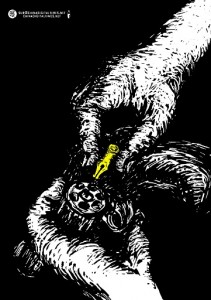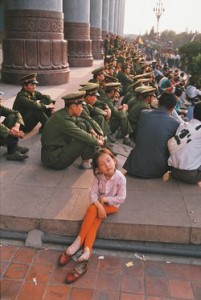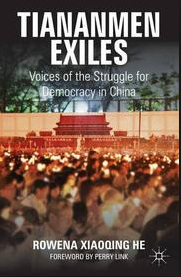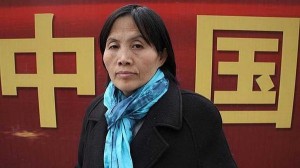By CHRIS BUCKLEY MAY 11, 2014, 7:00 PM

“We came too late,” Zhao Ziyang told students at Tiananmen Square on the morning of May 19, 1989.
In mid-May 1989, Zhang Gang was among a group of Chinese officials and scholars seeking to defuse the student protests that had filled Tiananmen Square for a month. They had been trying to coax concessions from the government and the demonstrators to end the volatile confrontation and protect the embattled Communist Party general secretary, Zhao Ziyang, who was increasingly at odds with the party patriarch, Deng Xiaoping.
Late at night, Mr. Zhang recalled in an interview, another official stepped aside to take a phone call and turned ashen-faced. The rifts in the party leadership over the Tiananmen protests, the official said, had reached a perilous turning point.
“He had a very grim look, and he turned to me and told me, ‘There was a meeting in Xiaoping’s home, and Ziyang has been sidelined.’”
“The political balance at the time was very brittle – very, very brittle – and as soon as the student movement erupted, this brittle balance was certainly going to be broken,” said Mr. Zhang, who in 1989 worked in a policy research office under Mr. Zhao and fled abroad that year, ending up in the United States. “On one side, we couldn’t rein in the old men, and on the other side, we couldn’t satisfy the students’ demands.”
Some two days later, Mr. Zhao made his famous ghostly appearance on Tiananmen Square. By then he knew that his political demise was sealed and that Mr. Deng had ordered martial law in urban Beijing, which would pit tens of thousands of soldiers against students and residents. Mr. Zhao went to the square at about 4 a.m. on May 19, and, surrounded by cameras and dumbfounded students, pleaded with the protesters to end their hunger strike and return to campus.
“We came too late,” he told them in the heavy accent of his birthplace, Henan Province in central China. After he spoke, students surrounded him for autographs.
Continue reading →






